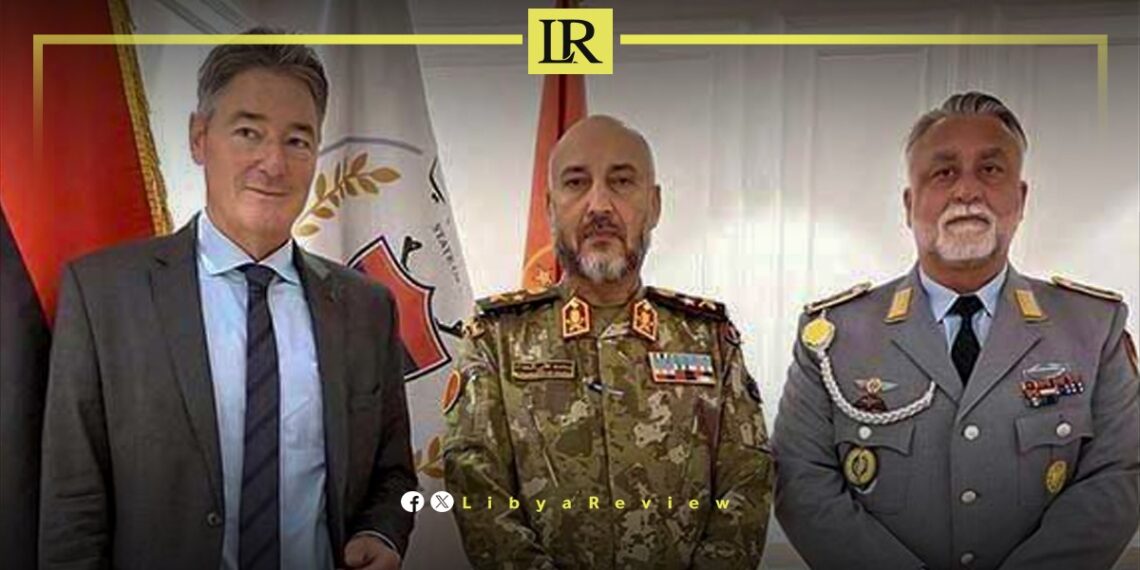On Monday, General Mohamed Haddad, Chief of General Staff for Libya’s Government of National Unity, held talks with Michael Unmacht, the German Ambassador to Libya.
This dialogue centered on the latest developments in Libya’s security and military sectors, aiming to pave the way for enhanced stability and unity within the war-torn nation. The German Ambassador described the meeting as “productive,” stressing the vital need for cooperation among key stakeholders to ensure the nation’s security and progress toward unifying its divided military apparatus.
The German diplomat, on a Twitter post, further highlighted that the discussions ventured into potential future collaborations between the two nations, indicating a proactive stance by Germany in supporting Libya’s path to stability.
This meeting gains context against the backdrop of General Haddad’s recent comprehensive briefing to Mohamed Al Mnifi, head of the Presidential Council, focusing on the strategic and security dynamics at the Ras Ajdir border crossing.
Since the 2011 uprising that toppled long-time leader Muammar Gaddafi, Libya has grappled with instability, becoming a battleground for rival factions and a focal point for international diplomatic efforts. The country’s strategic significance, compounded by its vast oil reserves and pivotal location along the Mediterranean, has drawn sustained international attention, including from Germany.
Germany’s engagement in Libya is part of broader European concerns about regional stability, migration, and the security of energy supplies. Berlin has actively contributed to international dialogues aimed at resolving the Libyan crisis, hosting key conferences that bring together Libyan factions and global stakeholders.
The dialogue between General Haddad and Ambassador Unmacht is reflective of Germany’s commitment to supporting Libya’s sovereignty and territorial integrity. It signals a willingness to assist in military and security sector reform as part of broader efforts to rebuild the nation.
As Libya strives to overcome a decade of conflict and division, the role of international partners like Germany becomes increasingly important. Their support can help facilitate the unification of Libya’s military forces, a critical step towards national reconciliation and the establishment of a stable, unified Libyan state.


